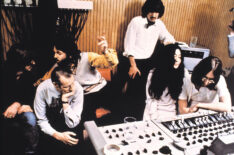George Martin

Record Producer • Composer • Conductor • Musician
Birth Name: George Henry Martin
Birth Date: January 3, 1926
Death Date: March 8, 2016 — 90 years old
Birth Place: Holloway, London, England, UK
Arguably one of the most important figures in 20th century popular music, George Martin ensured his immortality by producing the Beatles' studio albums, which in turn helped to shape the course and scope of music and culture from the early 1960s onward. As the "fifth Beatle," Martin served as a stabilizing force through which the raw genius of the four band members could filter their ideas; his background in classical composition helped them envision a musical aesthetic that not only bridged genres like pop, rock, country and experimental sounds, but created altogether new ones that influenced generations of performers and artists on such transformative LPs as Revolver, White Album, Sgt. Pepper's Lonely Hearts Club Band and Abbey Road.
Martin's post-Beatles collaborations counted some of the biggest names in the field, including Elton John, Eric Clapton and Michael Jackson, and yielded 30 No. 1 albums and over 20 No. 1 singles worldwide, but it was his work with the Beatles that made him one of the most significant personalities in the music world.
Born George Henry Martin on Jan. 3, 1926 in Highbury, North London, England, he was the eldest of two children born to working class parents. Music entered his life at a very early age - his family bought a piano when Martin was six, and he asked for lessons soon after. Reportedly, he taught himself how to play after an argument between his mother and his instructor brought the lessons to an end. As a teen, he found himself fascinated by the lush compositions and orchestration of classical music, which he discovered via a visit by the BBC Symphony Orchestra to his school, and pop music, which he indulged in at age 15 as a member of his own band, the Four Tune Tellers.
However, it was some time before he made music his profession. As a teenager, he worked as a quantity surveyor and later as a clerk for the British government's War Office. At 17, he signed on with the Fleet Air Arm - the aviation department of the British Royal Navy - and became a pilot and commissioned officer. He luckily avoided combat during World War II, and after leaving the service in 1947, began his music career in earnest. He put his veteran's grant towards the tuition for the Guildhall School of Music and Drama, where he studied piano and oboe from 1947 to 1950.
After graduation, he took a job at the BBC's classical music department before becoming assistant to Oscar Preuss, head of Parlophone Records. Regarded largely as a lame duck imprint from Germany by its parent company, EMI Records, Martin's aptitude for finding talented acts in both jazz and pop quickly sent him up the corporate ladder to label head after Preuss retired in 1955. Once settled into his new role, he produced a remarkable number of performers in both fields, as well as records with some of the brightest names in postwar British comedy. For his efforts, he received a considerable salary, but sadly, no royalties or bonuses, despite the success of many of his productions.
Between 1955 and 1962, Martin's name was found on countless records, ranging from jazz by Cleo Laine and Stan Getz to comedy albums by the Goon Show - which counted Peter Sellers and Spike Milligan in the number - Peter Ustinov, and the "Beyond the Fringe" show, which was the breakthrough vehicle for Peter Cook and Dudley Moore. Martin also dabbled in pop with minor success, and actively sought a homegrown outfit that could compete in the growing rock and roll market. He found them courtesy of manager Brian Epstein in 1962.
At the time, the Beatles were a quartet of Liverpudlians - Paul McCartney, John Lennon, George Harrison and Pete Best - who had earned their stripes in the rough-and-tumble music scene of Hamburg, Germany but had yet to land a recording contract in their native country. Nearly every major label in England had turned them down prior to Epstein's meeting with EMI; after being rejected by three producers at the label, he got a foot in the door via Sid Coleman, head of the label's publishing company, Ardmore & Beechwood. Martin initially found the Beatles' demo unimpressive, but admitted that there was something to note in the harmonies of Lennon and McCartney.
In June of 1962, the group auditioned for EMI in Studio Three at Abbey Road studios; Martin himself was not present, and the four songs were met with something less than enthusiasm after his initial listen. He felt that the original material was weak, and Best's drumming was a hindrance. A studio musician was suggested as a replacement, but McCartney, Lennon and Harrison settled instead on Richard Starkey, a.k.a. Ringo Starr, who had filled in for Best from time to time. The new-minted quartet met with Martin to discuss how matters should proceed, and the veteran producer asked if there was anything in the studio that they did not care for. Harrison quipped that he didn't like Martin's tie; the unexpected humor reminded the producer of the work he had done with older, established comics like the Goons - whom the Beatles greatly admired - and a bond was forged between Martin and the band that would last throughout the decade.
As producer, Martin helped the Beatles to refine their sound and explore the myriad of directions their music would take over their eight years as a recording act. His brilliance was in striking a balance between the raw, R&B-driven energy of their live act and a more polished tone for their recordings. Martin also wrote and performed most of the orchestral arrangements and instrumentation on their music, from the melancholy strings on "Eleanor Rigby" to the iconic crescendo that caps the epic "A Day in the Life." Martin also performed many of the keyboard parts that were heard on early Beatles recordings, but his work with the group went far beyond simply translating orchestral pieces for their work.
He was responsible for some of the most memorable elements in Beatles songs, from the wistful string quartet that follows Paul McCartney's vocal in "Yesterday" (McCartney was initially against the idea of strings on the tune) to the precise and intricate marriage of multiple tracks that formed the psychedelic backbone of "Strawberry Fields Forever." And he pushed the technology of music recording to its limits during the production of the groundbreaking Sgt. Pepper's Lonely Hearts Club Band by linking together two four-track recorders to create the world's first multi-track recorder in order to accomplish the overdubs and effects the band had conceived for the album. Martin's contributions to the music of the Beatles were so essential that he was frequently referred to as the "fifth Beatle."
Amazingly, he netted only two Grammys as their producer - for Best Contemporary Album and Album of the Year for Sgt. Pepper's - but was the architect for a musical act that eventually counted six Diamond albums, 24 multi-platinum albums, an Academy Award (for their final release, Let It Be) and more chart-topping records than any other act in music history.
During this incredibly prolific and inventive period, Martin also worked with countless other U.K. acts, including Gerry and the Pacemakers, Cilla Black, and Shirley Bassey, with whom he recorded the iconic "Goldfinger" single for the James Bond thriller of the same name. He also composed the music for the Beatles' acclaimed feature films "A Hard Day's Night" (1964), which earned him an Academy Award nomination, and "Help!" (1965), and arranged the score for 1968's animated Beatles film, "Yellow Submarine."
Yet despite all the innovations and critical and financial success Martin was bringing to EMI, he was still laboring under the same salary he had earned when he first signed with the label. This dichotomy spurred him to split with EMI and establish his own production company, Associated Independent Recording (AIR), which was followed by recording facilities in London in the 1960s and Montserrat in the 1970s; the latter played host to some of the biggest names in the business in the 1970s and 1980, including the Rolling Stones, the Police and Elvis Costello before its destruction in 1989 during Hurricane Hugo, while a third was built in Hampstead, England in 1991, and served as the recording studio for numerous major features, including the "Lord of the Rings " trilogy (2001, 2002, 2003). The move allowed Martin to hire himself out to whatever label or artist wished to utilize his skills; in exchange, he would receive a share of the royalties generated by the recordings. In the case of the Beatles, who continued to work with Martin until their rancorous dissolution in 1970, the end result was exceptionally lucrative.
Following the Beatles' breakup, Martin continued to work with some of the former members. For McCartney, he produced the hit theme to "Live and Let Die" (1973) as well as the score to the Bond film, and later returned for the albums Tug of War (1982), which featured the song "Ebony and Ivory" with Stevie Wonder; 1983's Pipes of Peace, which included the Michael Jackson duet "Say, Say, Say"; and 1997's Flaming Pie. Martin also produced Ringo Starr's solo effort, Sentimental Journey, and served as music supervisor for the 1988 documentary "Imagine: John Lennon."
In 1994, he returned to the original recordings for the massively successful Beatles at the BBC and three volumes of Anthology, which compiled a working history of the Beatles' recordings. For the project, Martin unearthed an old 8-track recorder - the same sort of recorder he and the group had virtually invented during the making of Sgt. Pepper's - in order to reproduce the warmth and vitality of the canon, rather than using digital means to emulate the sound. However, he declined to produce "Free as a Bird" and "Real Love," the two singles which featured McCartney, Harrison and Starr performing over unreleased demos by Lennon. Years of studio time had worn down Martin's hearing, and he passed the baton to former ELO frontman and frequent Harrison collaborator Jeff Lynne.
Martin's legacy with the Beatles made him a much in-demand producer for numerous musicians and groups from the 1970s through the early decade of the new millennium. Among the major acts that collaborated with him were Elton John, who tapped Martin to helm his chart-topping tribute to Princess Diana, "Candle in the Wind 1997," as well as Celine Dion, Jeff Beck, Cheap Trick, Kenny Rogers, Jimmy Webb, the Mahavishnu Orchestra, and America, for which he produced seven albums.
Martin also produced The Glory of Gershwin, a 1994 tribute to the legendary composer that featured covers of his work by Sting, Elvis Costello, Peter Gabriel and Cher, as well as a recording of Dylan Thomas' "Under Milk Wood" with spoken word performances by Anthony Hopkins and Jonathan Pryce and songs by Tom Jones and Catherine Zeta-Jones. In 1994, he netted a Grammy for producing the cast album for the Broadway production of the Who's rock opera, "Tommy." Martin also composed several film and television scores during this period, including 1972's "Pulp" and 1981's "Honky Tonk Freeway," and arranged the music for "Give My Regards to Broad Street" (1984), starring McCartney and Starr, and "Rupert and the Frog Song" (1985), an animated film written and produced by McCartney and his wife Linda, that featured several songs penned and sung by the ex-Beatle.
Martin also produced and served as arranger on the camp classic film "Sgt. Pepper's Lonely Hearts Club Band" (1978), the Bee Gees/Peter Frampton vanity vehicle that utilized Beatles material for its outlandish plot.
For his countless contributions to world music and the development of popular music, Martin was made a Knight Bachelor by Queen Elizabeth II in 1995. The achievement appeared to give Martin no reason to rest on his laurels; in 1997, he produced the "Music for Montserrat" concert at the Royal Albert Hall, which assembled an eye-popping host of musical talent, including McCartney, Eric Clapton, Sting and Elton John to raise funds for the tiny Caribbean island, which had been devastated by a volcanic eruption.
The following year, he produced and hosted "The Rhythm of Life" (1998, BBC), a documentary about the power and effect of music, which featured interview with many of his collaborators and admirers, including McCartney, Billy Joel and the Bee Gees. The year also marked his retirement from studio production with two projects: In My Life featured new versions of Beatles tracks recorded by an eclectic roster of friends and fans, including Jeff Beck, Phil Collins, Celine Dion, Robin Williams, Goldie Hawn and Sean Connery, while "Grow Old With Me" was an orchestrated version of an unreleased track by John Lennon that was included on the John Lennon Anthology. Martin capped the year by being named Man of the Year by the British Phonographic Industry. The following year, he was inducted into the Rock and Roll Hall of Fame.
In 2001, Martin's storied career received a fitting tribute with Produced by George Martin, a six-CD retrospective featuring the greatest songs from his five-decade career. The accolades continued for the greater part of the decade, including induction into the U.K. Music Hall of Fame in 2006 and honorary doctorates from numerous colleges and universities. Perhaps the most fitting honor came from the College of Arms, which presented him with his own Coat of Arms in 2004; the shield was decorated with a recorder under its wing above a trio of beetles.
Again, the honor appeared to slow him down only a little; while Martin's studio career had come to an end, he continued to work on specialty projects and live events, including the musical celebrations for the Queen of England's Golden Jubilee in 2001 and 2002. The same hearing issues that affected his decision to abdicate producing duties on Anthology, later required him to team with his son, producer Giles Martin, to remix Beatles material for Cirque du Soleil's elaborate dance production of "Love" in 2006. The album yielded a pair of Grammys for the Martins in 2007, providing a fitting cap to Martin's public career. Sir George Martin died on March 8, 2016 at the age of 90.
Credits
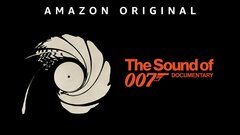
The Sound of 007Stream

John Lennon: The Dreamer

Lennon and McCartney: Hello From Liverpool

George Harrison: All Things Pass

Arena

George Harrison: The Quiet One

The Compleat Beatles

The Optimists
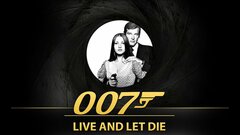
Live and Let DieStream
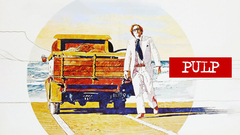
Pulp

Yellow Submarine

Yellow SubmarineStream

Drei tolle Kerle
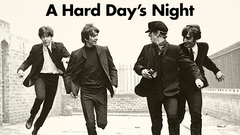
A Hard Day's NightStream


